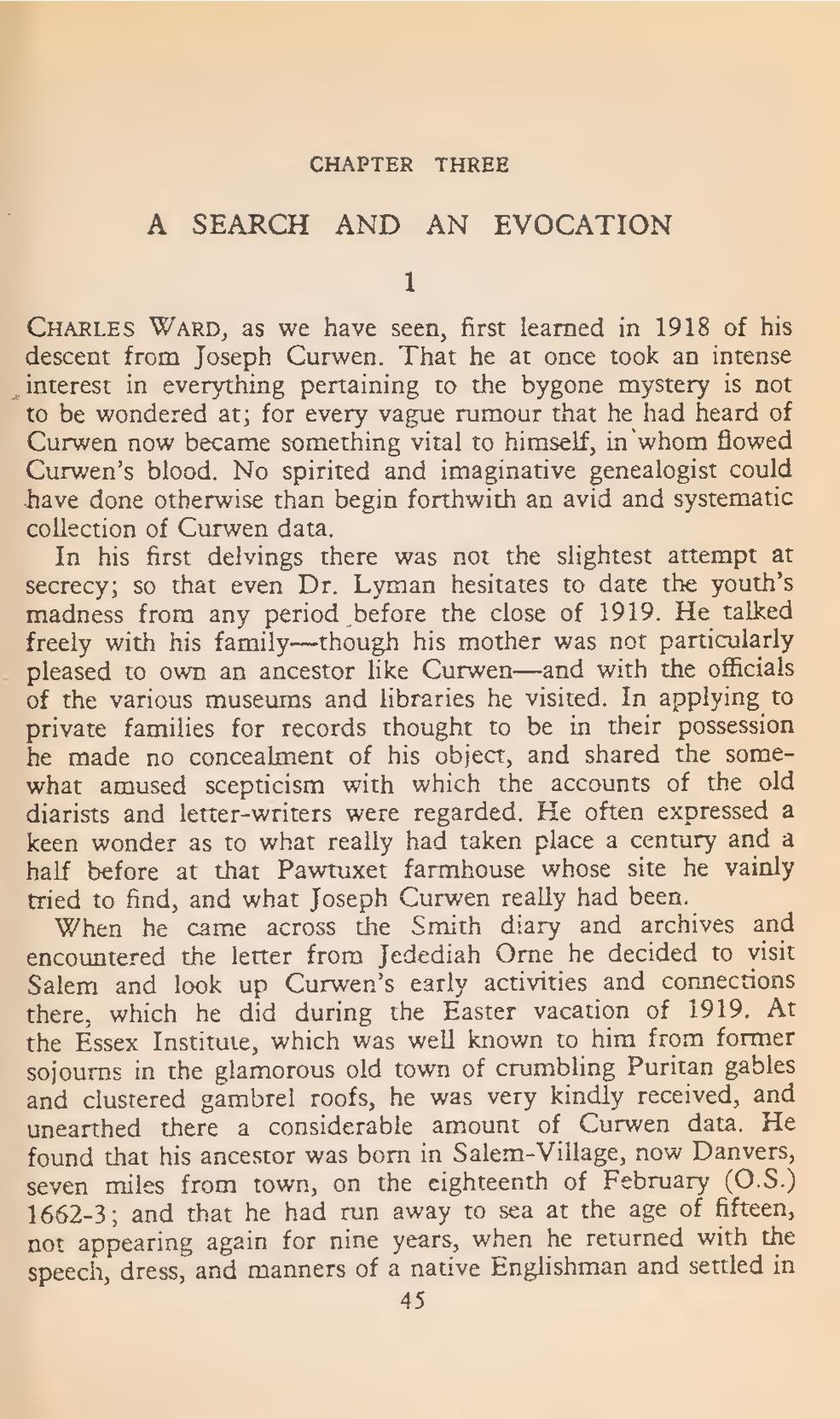CHAPTER THREE
A SEARCH AND AN EVOCATION
1
Charles Ward, as we have seen, first learned in 1918 of his descent from Joseph Curwen. That he at once took an intense interest in everything pertaining to the bygone mystery is not to be wondered at; for every vague rumour that he had heard of Curwen now became something vital to himself, in whom flowed Curwen's blood. No spirited and imaginative genealogist could have done otherwise than begin forthwith an avid and systematic collection of Curwen data.
In his first delvings there was not the slightest attempt at secrecy; so that even Dr. Lyman hesitates to date the youth's madness from any period before the close of 1919. He talked freely with his family—though his mother was not particularly pleased to own an ancestor like Curwen—and with the officials of the various museums and libraries he visited. In applying to private families for records thought to be in their possession he made no concealment of his object, and shared the somewhat amused scepticism with which the accounts of the old diarists and letter-writers were regarded. He often expressed a keen wonder as to what really had taken place a century and a half before at that Pawtuxet farmhouse whose site he vainly tried to find, and what Joseph Curwen really had been.
When he came across the Smith diary and archives and encountered the letter from Jedediah Orne he decided to visit Salem and look up Curwen's early activities and connections there, which he did during the Easter vacation of 1919. At the Essex Institute, which was well known to him from former sojourns in the glamorous old town of crumbling Puritan gables and clustered gambrel roofs, he was very kindly received, and
unearthed there a considerable amount of Curwen data. He found that his ancestor was born in Salem-Village, now Danvers, seven miles from town, on the eighteenth of February (O.S.) 1662–3; and that he had run away to sea at the age of fifteen, not appearing again for nine years, when he returned with the speech, dress, and manners of a native Englishman and settled in
45
